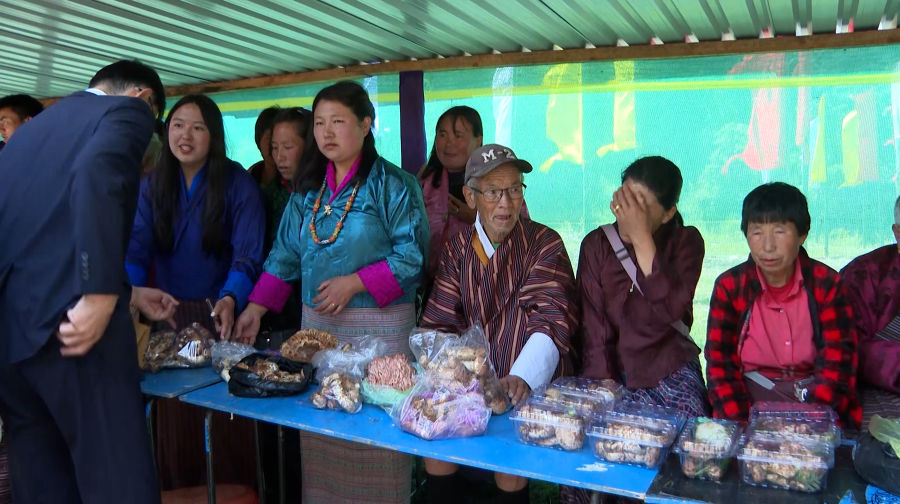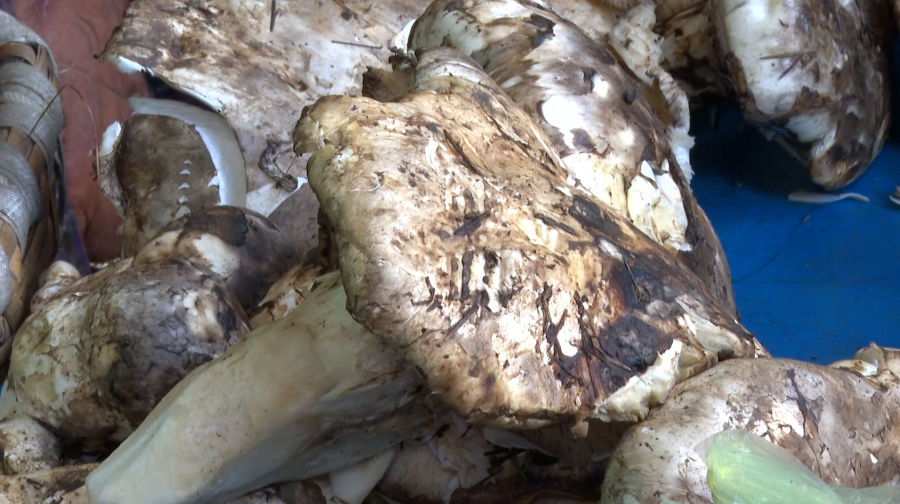 The aroma of freshly picked mushrooms and the sound of music filled the air at the two-day Matsutake Mushroom Festival, which ended today in Genye Gewog, Thimphu. Locally known as Sangay Shamu, the mushroom is one of the main sources of income for the people of Genye gewog. It is as valuable to them as cordyceps is to the highland communities.
The aroma of freshly picked mushrooms and the sound of music filled the air at the two-day Matsutake Mushroom Festival, which ended today in Genye Gewog, Thimphu. Locally known as Sangay Shamu, the mushroom is one of the main sources of income for the people of Genye gewog. It is as valuable to them as cordyceps is to the highland communities.

This year’s highlight was the launch of Matsutake Tea, a new product developed by the community in collaboration with B-Organic. A box of tea costs some Nu 1000.
The festival was graced by Prime Minister Tshering Tobgay and attended by hundreds of visitors.
Genye Gup Kencho said, “People here mainly depend on Matsutake mushrooms and potatoes for their livelihood, so this festival is a way for us to celebrate and honour the mushroom. It also allows us to promote our produce, market the mushrooms, and build connections with international buyers and countries.”
“Usually, we have to sell our mushrooms to contractors by grading them into categories such as A, B, and C. But with this festival, we don’t have to rely on that system. The festival itself creates a market where all mushrooms are valued, and the community benefits equally,” said Sangay, the chairman of the Sangay Group.
Matsutake remains one of the primary sources of income for households in the gewog. A resident said that most families earn between Nu 50,000 to 200,000 each season from Matsutake.
“We usually have to wake up as early as 4:30 in the morning and head to the forest to pick mushrooms. Everyone carries their foraging stick, which is very important when searching for matsutake,” said Namgay, the resident of Wangbama.
The festival also featured a mushroom identification competition, spring water therapy, mask dances, and cultural performances.
“Last year alone, the gewog was able to earn around thirteen million ngultrum from selling mushrooms. The income has been a great support for the people in the village, helping them manage their daily expenses and cover school fees for their children. This year, we hope to earn around Nu 15-16 M,” added the gup.
Additionally, the Department of Tourism emphasised the eco-tourism aspect through this festival.
“Every year, we notice an increasing number of tourists who are attracted to this festival and attend it. We hope their participation will continue to benefit our local economy,” said Singye Rinchen, the tourism officer from the Department of Tourism.
As tents go up across the gewog, with families from nearby chiwogs camping overnight to enjoy the event, the festival continues to be a reminder that Bhutan’s natural wealth can sustain livelihoods, preserve traditions, and invite the world to experience its beauty.
Kinley Bidha
Edited by Tandin Phuntsho








